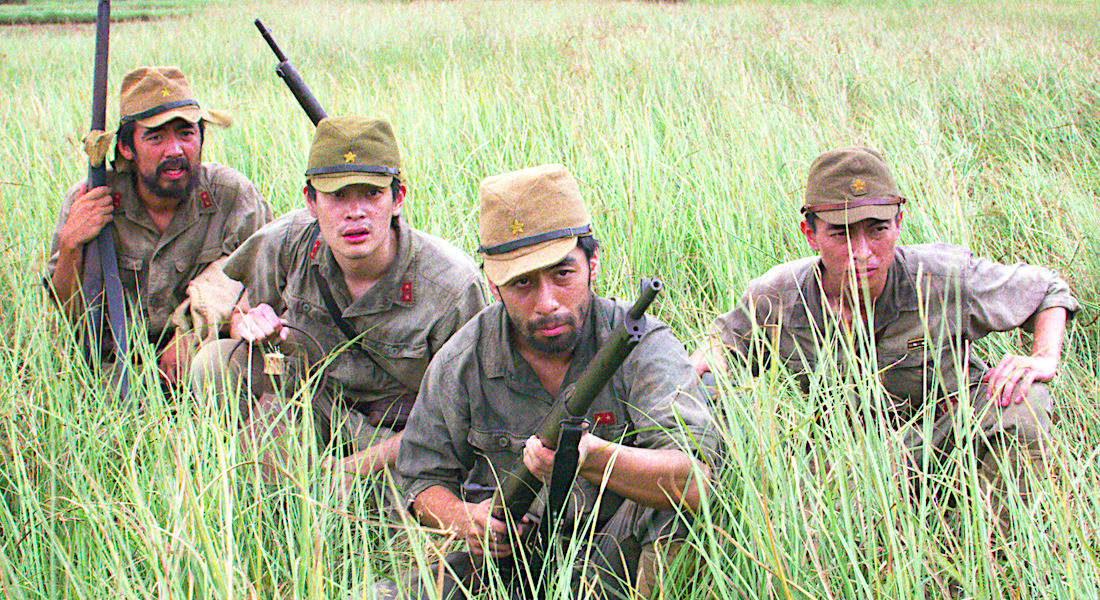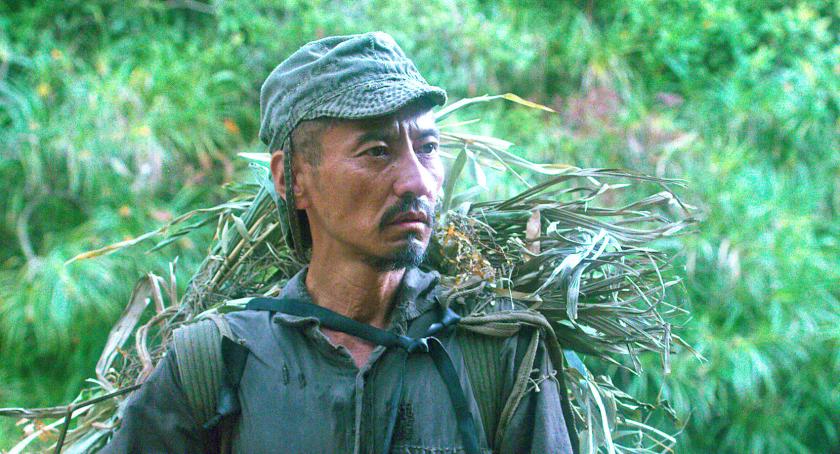Stories of Japanese soldiers who spent years in the tropical jungles long after the end of World War Two have always felt more like metaphorical illustrations of the lunacy of war than actual historical fact. Yet some of them were true, most notably that of Hiroo Onoda.
Paris-born director Arthur Harari’s film traces Onoda’s story from his attempts in 1944 to qualify as a pilot – his trainers failed him because of his fear of heights, though they did offer him the consolation prize of becoming a kamikaze pilot – to his recruitment to a secretive unit specialising in undercover operations. As American task forces surged across the Pacific, the job of Onoda and his comrades was to remain behind on islands liberated by the Americans and wreak havoc by any means possible. Their commander, Major Taniguchi, urged them to adapt, survive and improvise, and insisted that “above all you are forbidden from killing yourself”. Onoda’s father had given him a ceremonial knife so he could commit ritual seppuku rather than be captured by the enemy, but his new secret role meant throwing such traditional orthodoxies to the wind.
Thus Onoda found himself on the island of Lubang in the Philippines as an American invasion force crushed the remaining Japanese resistance. Gathering a small group of tattered survivors, Onoda explained to them his previously-concealed specialist training in subversion and resistance, and exhorted them to join him in his campaign of disruption. Major Taniguchi had promised faithfully that “we will come back for you!”, however long it took. After weeding out the faint-hearts lacking the strength or self-belief for the job, Onoda ended up as the leader of a mini-cadre of four men. Whether he is to be admired for his unswerving commitment or reviled as the brainwashed tool of a hideously brutal imperialist regime is for the viewer to decide. Harari’s interminable 168-minute saga sets the scene and paints the picture, but its languid pace and limited amounts of action or investigation of character make it a wearisome watch. Indeed, the fact that Onoda and co find themselves on an island without a single American on it turns the film into a kind of over-extended shaggy-dog story, albeit one with overtones of tragedy and delusion. Very little happens in the sealed world of the Lubang jungle, though there are a couple of brief, brutal encounters with Filipino guerrillas and some warlike fishermen armed with bows and arrows. Early on, the Japanese are told by some Filipinos that the war is over and the fighting has stopped, but they think they’re being hoodwinked and refuse to believe it.
Harari’s interminable 168-minute saga sets the scene and paints the picture, but its languid pace and limited amounts of action or investigation of character make it a wearisome watch. Indeed, the fact that Onoda and co find themselves on an island without a single American on it turns the film into a kind of over-extended shaggy-dog story, albeit one with overtones of tragedy and delusion. Very little happens in the sealed world of the Lubang jungle, though there are a couple of brief, brutal encounters with Filipino guerrillas and some warlike fishermen armed with bows and arrows. Early on, the Japanese are told by some Filipinos that the war is over and the fighting has stopped, but they think they’re being hoodwinked and refuse to believe it.
It was, perhaps, Harari’s intention to use sheer length to evoke the epic pointlessness of Onoda’s long vigil (he didn’t finally down tools until March 1974). From time to time a large caption pops up to denote the passage of a few more years and the soldiers look older and more bearded, though strangely their uniforms never seem to wear out. The climax hoves into view when a group of Japanese visitors, including Onoda’s father and brother, set up a camp in the jungle and appeal to the soldiers through loud-hailers to give it up and come home. They leave behind some newspapers and a radio so Onoda can learn the facts about how the world has moved on, but again he’s convinced it’s all elaborately-planned fake news. Even listening to the American moon landing in July 1969 can’t convince him that everything’s different now.
It’s only the arrival on Lubang of Norio Suzuki, a kind of tourist-groupie who thinks it would be a brilliant laugh to track down the by now somewhat legendary Onoda, which brings it all to a conclusion, though it takes a visit from Major Taniguchi in person before Onoda will at last believe that he’s been wasting his time for the last three decades. Thanks to Arthur Harari, we can perhaps discern a very faint twinge of how he must have felt.















Add comment